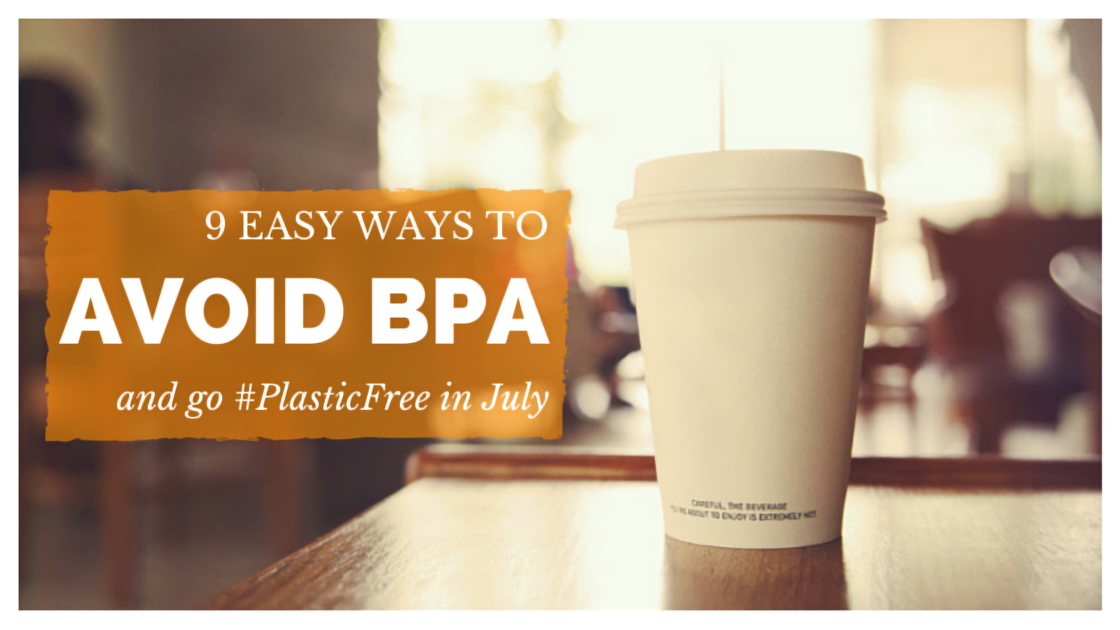
BPA (bisphenol-A) gets a lot of attention in the media, and for good reason. It is a potentially cancer-causing compound used in plastic production. Potential health effects from exposure include ADHD, breast cancer, prostate cancer, and other developmental problems. It’s so dangerous that the compound has been banned in baby bottles in Europe, China and Canada – but not here in the U.S. To top it off, it’s very hard to avoid BPA exposure. It’s in everything from plastic water bottles and plastic-packaged foods to store receipts and soup cans. So how do you stay away from BPA? Here are our tips to avoid BPA exposure now and limit it in the future.
Get rid of the plastic water bottles and switch to glass. Glass is non-permeable and won’t absorb color, odor or taste. Because the surface is non-porous, glass water bottles cannot contain BPA or any other harmful chemicals. Want to take your water on the go? Invest in a shatterproof glass water bottle.
Don’t microwave plastic containers. This means also cutting out microwavable meals and replacing them with only freshly prepared food or leftovers stored in glass containers.
Avoid canned foods and beverages unless they indicate that they have a BPA-free lining. Replace canned soup with soup in a carton. Especially look out for canned foods that are acidic, salty or fatty, as these can cause the can lining to leach BPA into the food.
Replace your coffee maker with a ceramic drop, stainless steel electric percolator or French press. Automatic coffee makers have plastic parts that can be affected by the hot water.
Get e-receipts when possible. BPA is used to develop the ink in thermal paper, which means receipts, boarding passes, lottery tickets, parking tickets, movie stubs, and ultrasound printouts are all sources of possible BTA exposure. It’s impossible to avoid these things altogether, but there are steps you can take to protect yourself.
- Wash your hands after touching thermal paper, especially before handling food
- Decline receipts at the gas pump and ATM
- Never crumple the receipt paper
- Don’t recycle thermal paper – the chemicals contaminate the recycling stream
- Keep thermal paper out of the hands (and mouths) of children
Choose safe baby products. Make food fresh or only purchase baby food packaged in jars. Avoid hand-me-down baby bottles and sippy cups, as those products made before 2012 may contain BPA. Select toys made from natural materials, such as wood, and use teething products made from natural rubber or fibers instead of synthetic rubber teething toys. If you use baby formula, choose the powdered kind over the pre-mixed liquid. A study by the Environmental Working Group found that liquid formulas contain more BPA than powdered versions.
Look for alternatives to plastic wrap and storage bags for food. Some examples are parchment paper, glass containers, recycled aluminum foil, and beeswax cotton wraps.
Talk to your dentist about the materials used in dental sealants and composite filling materials. Studies have shown that these products often contain BPA.
Fortunately, if the amount of BPA being taken in is minimal, the body will naturally filter most of it out of the system. An ounce of prevention goes a long way, so look for the little things you can do to reduce your exposure to BPA. Many of the suggestions above will lead to a healthier lifestyle even if there comes a time where BPA is no longer a threat; after all, eating fresh food, reducing waste from plastic water bottles, and supporting sustainable production are all great, green practices we can all get behind.
Want to get started going #PlasticFree in July? Enter to win a shatterproof glass water bottle from Glasstic or shop our 15 percent off sale, happening the entire month of July.

